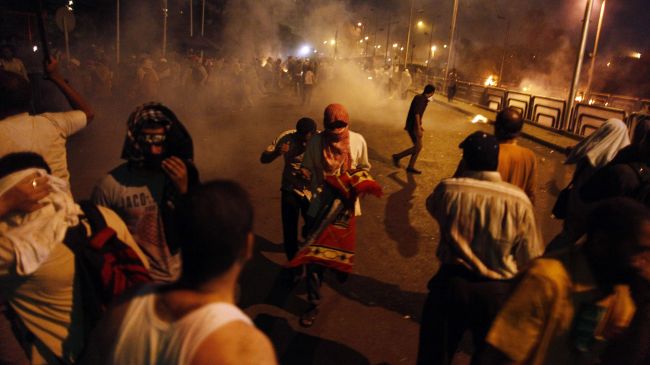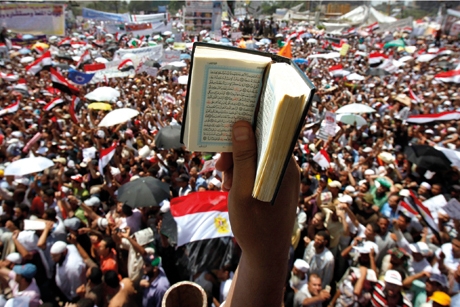A religious man as well as an activist, Ghandi described himself as ‘Hindu, Christian, Buddhist and Jewish’ and challenged all those religions by looking at their day to day social practices.
Equality between men is an ideal. Religions, philosophies and political ideologies have made the equality of human beings the essence of their teachings, principles or systems. Individuals must be treated with equal dignity and fairness. And yet a journey through societies and nations is all it takes to convince us that we still have a very long way to go: political philosophies have been elaborated, Declarations and Charters have been drawn up, ratified and signed, and laws have been passed, but the reality of inequality and discrimination is obvious to all. Universally. Whilst equality is a de facto legal principle, we cannot avoid the conclusion that the law is not enough to establish it. Before we talk about laws and rules, we have to discuss and evaluate the very idea of humanity, and of its unity and diversity. And besides, there can be no law without ethics … without a certain idea of Man, of the good, and of social and political ideals, and there can therefore be no question of legal equality amongst Men without a moral philosophy that establishes the nature of human relations. Elaborating an ethical principle that we can add, a posteriori, to the order that establishes equality between men is out of the question. We must determine, a priori ¸a basic principle without which that order has no substance and no reality. We must evaluate laws in terms of their philosophy and –always– their relationship with power.
Ancient philosophies or religions often established the basic principle that human beings had a common origin and were therefore equal. And yet the fact remains that the way they were interpreted often condoned inequalities and relations of intellectual, religious and/or political domination: between Greeks (and then Romans) and barbarians, between those who were called religious ‘reprobates’, and between the civilized and the colonized, sometimes in the name of the philosophy of the Enlightenment. The fact that we accept that all men are descended from Adam, that the evolution of species is an established fact, or that science tells us that the concept of ‘race’ is a purely intellectual construct that has been scientifically and objectively refuted, does not alter anything: philosophies, discourses and the way we view others and ourselves –explicitly or implicitly—condone inequality and the discrimination that comes in its wake. Even if laws do try to correct and regulate discrimination, their ability to establish a new balance is partial and imperfect. Once again, we must pursue the ethical question to its logical conclusion, set aside philosophical postulates, religious dogmas and scientific facts, and ask individuals and societies about what they think of Man and human fraternity.
One thinks of Mahatma Gandhi’s struggle at the heart of Hinduism and the caste system. No matter whether they are parias, the ‘children of God’ (Harijan), as Gandhi affectionately called them, or the ‘oppressed’ (Dalit) as some, like the lawyer and politician B.R. Ambedkar, described themselves, the ‘untouchables’ were marginalized and excluded from the four castes recognized by classical Hindu philosophy. According to that philosophy, the order of the cosmos is perfect and the universal law (dharma) establishes castes and categories. Castes are the perfect human representation of those categories and orders. They respect and mirror the dharma, which must be respected, perpetuated and promoted if we wish to act in harmony with the order of the macrocosm. Priests, teachers, intellectuals (Brahmans), warriors, kings and princes (ksatriyas), and artisans and shopkeepers (vaisya) are the elect and can attain knowledge, whilst servants (sûdras) –who are themselves divided into a multitude of categories—obey the higher castes by pursuing activities that have less spiritual and social value. The parias represent yet another caste that exists outside the caste system at the very bottom of the cosmic hierarchy, and lives in a state of impurity, indignity and poverty. This is, then, an order or harmony that requires a hierarchy of superiors and inferiors, and its set of social relations –spaces, trades, marriages, friendships, and so on– is so codified as to reflect that reality. Gandhi fought to give the untouchable or harijan access to education, to get them out of poverty and to ensure that they had fairer treatment. He waged a ceaseless struggle against the injustices and scorn those who were excluded from the system had to face. In January 1934, he interpreted the Bihar earthquake as a warning and a punishment for the higher castes, their arrogance and their ‘sins’ against the poor and the parias. When he died in January 1948, the caste system had been abolished for a year (with India’s accession to independence), thanks to the Constitution drafted under the authority of Ambedkar, who was appointed by Nehru. He was a very early critic of Ghandi’s ‘over-condescending’ attitude, wanted the untouchables to be called the ‘oppressed’ (dalit) and advocated the principle of ‘affirmative action’ or positive discrimination in favour of the marginalized castes. Reality, however, was not so fine. The law had no power to change mentalities. The system lived on in the silence of everyday life, far away from visible breaches of the law. Ghandi knew that and stressed (over fifty years ago now) that there was a need to work on the underlying idea of Man that was being taught in schools and elsewhere, on the moral meaning and even the conception of fraternity that lies at the heart of philosophies and religions. Unless that was done and unless people were educated, the law would be nothing more than a pretext or a dangerous instrument in the hands of those who held power (and/or the power of the word) and who defended their privileges thanks to laws that seemed in essence to be egalitarian but that were not egalitarian in practice. That issue was central to the debate between Ambedkar, who was himself a son of the untouchable caste, and who was demanding equality, resistance, justice, the right to interpret the law and access to assume and militant speech, and Gandhi, who advocated the love of the excluded, and reform from within thanks to the active commitment of the elite and the wealthy.
A religious man as well as an activist, Ghandi described himself as ‘Hindu, Christian, Buddhist and Jewish’ and challenged all those religions by looking at their day to day social practices. He warned: ‘Once we lose our moral certainties, we cease to be religious.’ Practices and philosophies must, in other words, be consistent and must be considered together. The same questions run through our modern societies, both North and South, with the same intensity as in Gandhi’s day, even though the castes, classes and categories of our societies –be they ‘developed’ or ‘developing’—seem to be less visible than they were in India in the first half of the twentieth century. The dialectical relationship is still the same and the questions appear to be unchanged: the concrete inequalities of everyday urge us to be critical of our basic philosophies and of our conception of human fraternity, just as they must challenge the consistency of systems that claim to be egalitarian. There can be no law without ethics, and there can be no ethics without the law: we find the same equation in all religions and, with or without God, in all spiritualities and humanist and/or political philosophies.










Dear Mr. Ramadan,
Thank you for posting this interesting article. In my contribution of food for thought, I thought I might share my thoughts on Gandhi, on a slightly different perspective. If you are active on your forum to reply to your readers’ feedback, I’d love to know your thoughts on the below :
————————————-
GANDHI, THE ANTI-BLACK RACIST
« Ours is one continued struggle against degradation sought to be inflicted upon us by the European, who desire to degrade us to the level of the raw Kaffir, whose occupation is hunting and whose sole ambition is to collect a certain number of cattle to buy a wife with, and then pass his life in indolence and nakedness. » GANDHI (The Collected Works of Mahatma Gandhi, Ahmedabad, 1963, Volume II p. 74)
Make no mistake, these are Mahatma Gandhi’s words. This is the world’s icon for peace, brotherly love, and tolerance who is perceived today as a messiah or a divine deity. I recently came across the above quote, and could barely believe what was quoted. Reading further, I discovered it is all but a heroic myth. Gandhi was deeply prejudiced to minorities, especially the « Kaffirs » – a term with which he demeaningly calls black Africans – and low-caste Hindus of his own Indian nation. Contrary to the liberal myth, Gandhi never once tried to help anybody else but Indians, and even then, only upper castes Indians at that. He consistently sought a special position for his people which would be separated from and superior to that of the blacks.
The Hindu castes were social hierarchies with other sub castes and beneath that were the social outcasts. This system itself was more complex, it is not practiced anymore although the social discriminative traces still seem to be present amongst Hindu groups. Unlike tribal conflicts in many countries, India’s castes were an actual « system » that Gandhi had followed and advocated for in the famous train incident he was convincing the South African government to let the « upper caste » ride it, not even the lower caste Indians (quote) : « Thanks to the Court’s decision, only clean Indians or colored people other than Kaffirs, can now travel in the trams. » (Indian Opinion 1905)
His support for South Africa’s racial segregation is contrary to the myth that he was against the segregation or apartheid. Another shocking excerpt from his writing to the Indian Opinion, 15 Feb 1905, show disdain to the the « mixing » of blacks who were allowed into an Indian neighbourhood (quote) : « Why, of all places in Johannesburg, the Indian location should be chosen for dumping down all Kaffirs of the town, passes my comprehension. Of course, under my suggestion, the Town Council must withdraw the Kaffirs from the Location. About this mixing of the Kaffirs with the Indians I must confess I feel most strongly. I think it is very unfair to the Indian population, and it is an undue tax on even the proverbial patience of my countrymen ». To avoid this « mixing », and to ensure the Indians were granted full citizenship rights and a higher status than the blacks, Gandhi encouraged the British war on the Zulu rebels in 1906 offering to recruit Indian soldiers to join the fight. And yes, with weapons.
Now maybe history has selective amnesia, or maybe black people are not worthy enough to fret over. Let’s focus on the great accomplishments, after all who cares that he was racist to blacks ? Weren’t they used and stepped over by every other « superior » race anyway ? I wonder how many people would this serve them as a shock. Perhaps it was given at that time to be racist, Gandhi studied law in England under his colonial masters, but isn’t it strange that such a visionary had not learnt from the suffering of the enslaved « kaffirs » in the US – if he was blind of his own country’s segregation threats ? US enslavement of blacks ended in the 19th century while the South African apartheid lasted till only 15 years ago.. His letters to Hitler were ’understanding’ for his « love of the fatherland » (by cleaning it of all the jews I suppose) which makes sense when he’s quoted : “If there is one thing, which the Indian cherishes, more than any other, it is the purity of type.”MK Gandhi, Indian Opinion,24 December 1903) .
The irony is that Martin Luther King Jr. held Gandhi as his idol for his revolutionary nonviolent resistance. President Obama has a photo of him in his oval office. But say Gandhi with those dispositions had been in America when the celebrated black lady, [Rosa Parks->http://en.wikipedia.org/wiki/Rosa_Parks] , refused to get off the bus or sit at the back of it, what would Gandhi’s stance have been ? With his « purity of type » and « mingling with/dragged down by the kaffir » comments, they clearly indicate that he probably would not have allowed her in the bus in the first place – exactly as the tram in South Africa which « allowed Indians or other coloured people to travel other than kaffirs ».
I have no interest in making a villain out of a seemingly inspiring and peace-loving figure. I’m interested to know the four sides of the story, not the single one we are conditioned to know and prevented from learning the rest, especially if the subject/character is used as a token of peace, worshiped as a God in temples or perceived a prophet.
What did I personally learn from this ? The definition of « humanity » is not universal as I had naively thought. I nevertheless respect Gandhi for vehemently advocating for what he believed in for his own (type of) people. It’s about time nations in trouble cease to seek support from outside, but lift and dust itself up and stand tall in face of challenge, to empower themselves without outside intervention. No Gandhi, no Zeus or Apollo will help anyone if one does not help oneself himself.
My regards,
TK,
->http://aptnation.blogspot.com/2010/09/gandhi-anti-black-racist.html]
Assalâm ‘alaïkoum w rahmatoullah,
Thanks for this contribution. I am not fluent in English so I hope you’ll be conciliatory with me.
I think it is very important to be cautious with such a quotation and to contextualize it even if I agree with your stance not to idealize anybody, even a historical icon. Tariq Ramadan, in this text, tends not to do so.
The negative representations of Black people is a long-lasted historical construction. A parallelism can be made with orientalism and the construction of the figure of the Oriental. Edward W Saïd dealt with that subject very brillantly.
I do not want to say any think about Gandhi because I have not studied his life and his thought. Any way, Edward W. Saïd showed how the schemes of thinking of orientalism remain powerful in the « West » till today. Claiming the brotherhood between every human being regardless to his religion, his culture or the colour of his skin does not erase the clichés that it brodcasts.
So, one can be humanist concerning a subject in one way and having incorporated clichés and racist representations of a specific social group such as Black people in an onther way. But one can hardly assert that about Gandhi without a cautious research. I think it is important to developp such a investigation because every body speaks with a certain point of view, Tariq Ramadan as anybody else. He can’t be universal but has his one perpective.
Allahou ‘alam and sorry for my bad english.
I am shocked but not surprised
After all Gandhi was only a product of his time and environment
Like all humans
Great freedom fighter for his people
However i would like to know more about Gandhi economic views